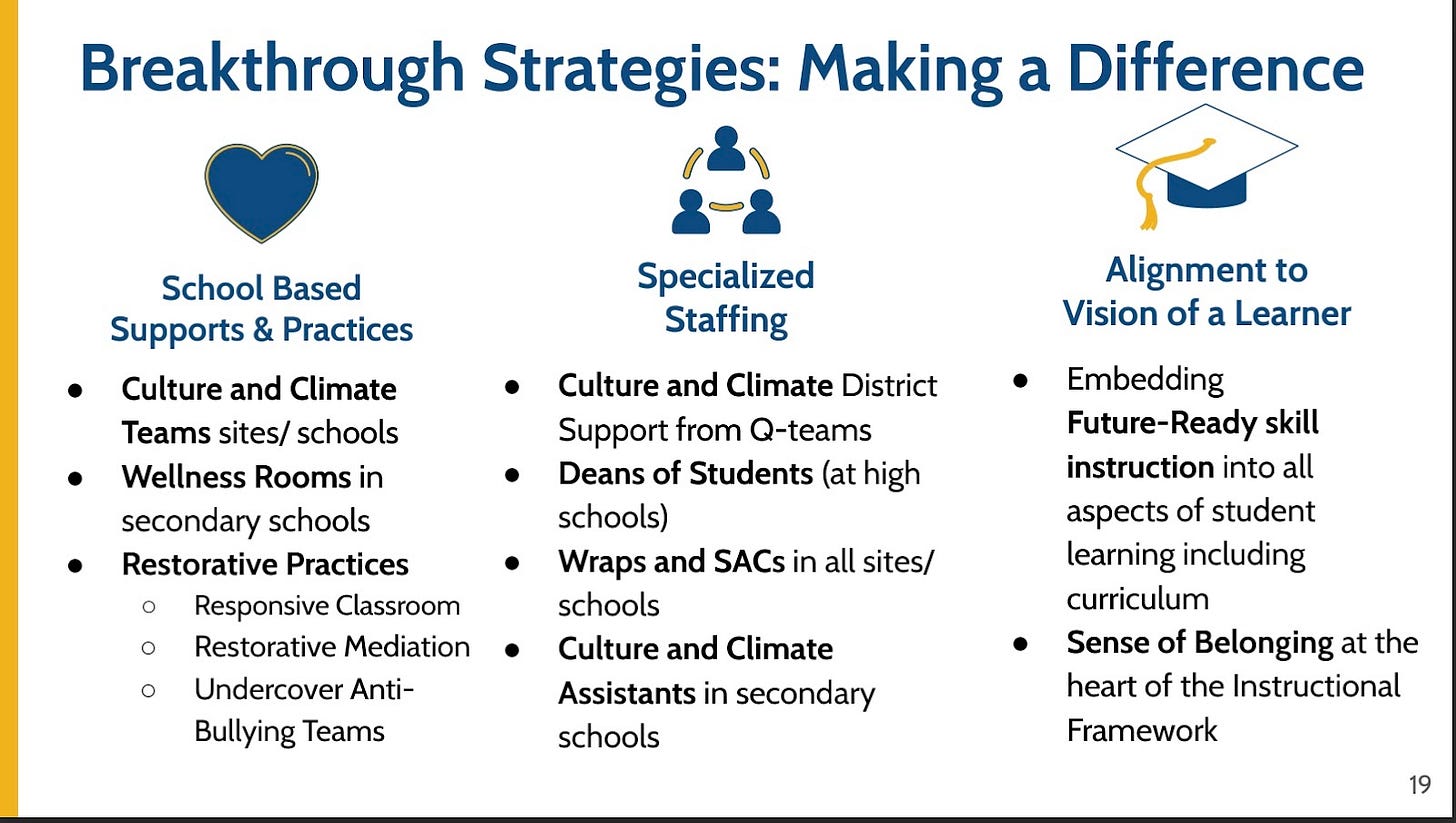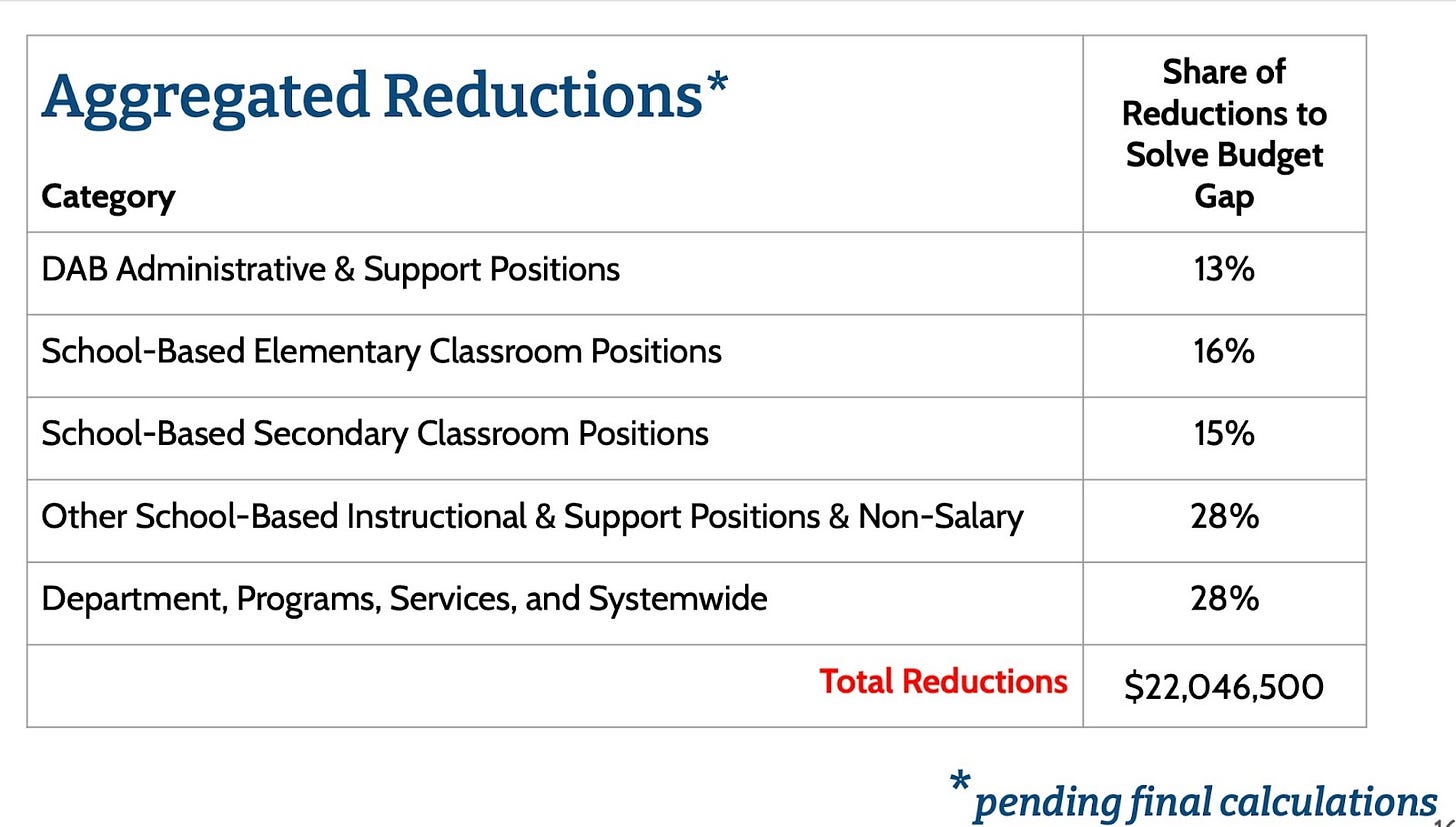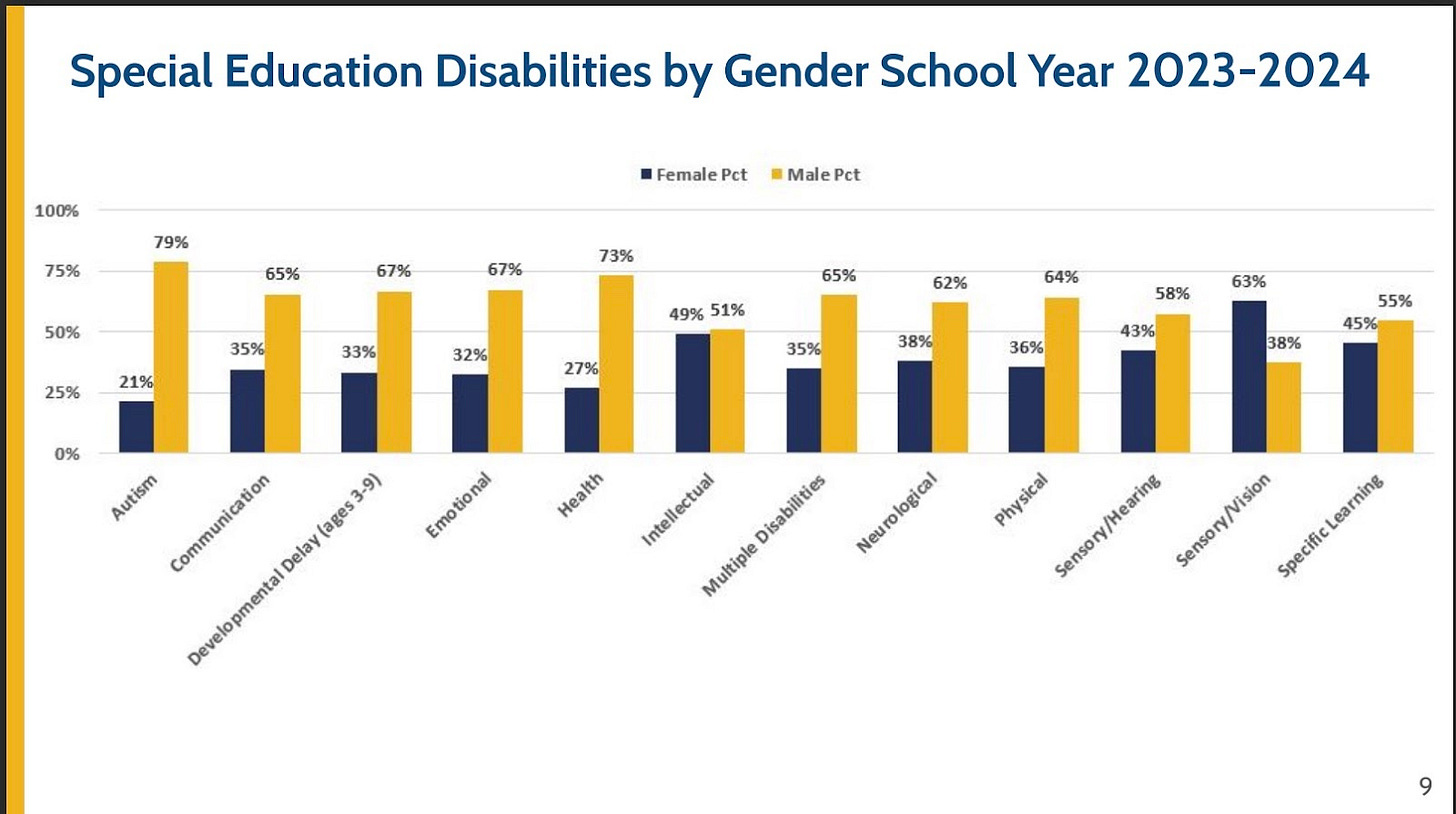WPS in Brief: April 2024
Budget dilemma, students with disabilities, climate & culture, and cell phone policy
This monthly column detailing all things Worcester Public Schools is paid for by Worcester Sucks which is supported entirely by paying subscribers. We don’t paywall anything here, we just ask nicely. Please consider a paid subscription if you can swing it :-).
And if you have friends in the WPS or friends with kids in the WPS, help us spread the word about WPS In Brief!
Welcome to the 16th issue of WPS in Brief. This month covers key topics from three school committee meetings (April 4, April 25 and May 2) and two Finance, Operations, and Governance standing committee meetings. April’s Teaching, Learning, and Student Supports standing committee meeting was canceled.
Let’s dive in:
Meeting Moment to Watch.
I am leading with the meeting moment this month in the hopes you will watch Member Jermaine Johnson (district F) voice his frustrations about items at the April 25 school committee meeting. Johnson is the only school committee member who has kids in WPS and he is also a social worker. Here, he is voicing what I think most of us with children in the schools and/or who work in the schools are feeling: we need the school committee to be high functioning, to focus on their purview, and move the district forward in a constructive way. Johnsons says, “Our schools still need a lot of work. They’re going to continue to need work five years from now, ten years from now, but as long as we’re moving forward that’s what’s important. I just can’t sit around and continue to listen to some of these narratives that our schools are out of control. That’s not the case.” It is rare that Member Johnson gets emphatic, so when he says he does it’s usually worth a listen.
The Budget Dilemma.
At the May 2 school committee meeting, Superintendent Monárrez gave a broad overview of the cuts that will be proposed due to the $22 million deficit in the WPS budget for next school year. (If you want to understand why we have a deficit, read up here.) The Superintendent described the budget process, explaining that the district did a comprehensive look at where cuts could happen while still aligning with the strategic plan. Lots of stakeholders gave input, including high school students, caregivers, educators, and principals.
Here are the areas of most importance according to those stakeholders:
In terms of cuts, they can only come from areas that are not fixed costs, and in education that typically means instruction. The district proposes cutting the following:
Which equates to:
-45 elementary teaching positions
-41 middle and high school teaching positions
-22 administrative positions
And just for context, as an average, a budgeted teacher position is about 100k-which includes salary and benefits.
These proposed cuts would mean that the class size average districtwide would rise to 21. When I emailed the district for clarification on how they came to that average the spokesman wrote back that “average class size was roughly based on the number of students vs. the number of teachers, but it did not include preschool (set limit), substantially separate programs, Ch. 74 programs, etc., which are unique and/or require certain limits.” According to the Superintendent, there are just 10 classrooms slotted to have 27 students for next year, assuming enrollment stays generally the same. Like most averages, it’s not a great metric for how it will impact individual educators and students. For example, 27 students in a second grade class all day is very different from one block of a middle school social studies class with 27 students. The Superintendent did mention that they have budgeted for what they call “pocket positions,” which give flexibility to add a teacher or a paraeducator to a particular school should there be a huge influx of students.
We’ll learn all the details when the full budget book is posted on Friday, but some other information that came out during deliberation is that all building substitute positions are proposed to be cut (saving ~$3.1 million). And three school committee members spoke adamantly in favor of maintaining middle school sports (coaches salaries were budgeted at $128k this year). The Superintendent also gave an overview of some proposed reallocation of resources, including:
Adding a positive youth development support team to the quadrants: Each quadrant team would have a BCBA and four paraeducators added. The idea would be that when there is a behavioral issue, principals can call on the quadrant BCBA to come up with a plan, the BCBA will figure out the need, and then will train the paraeducator who will then work with the student, the staff, and the principal to rework the behavior for the child. Plus there will be two additional floating BCBAs who will also be the trainers.
Equitable elementary caseload for special education. The Superintendent said that in the past the budget allocation for special ed teachers who work in the general education setting was based on a caseload ratio of 45:1. For next school year they are proposing changing it to 30:1, but also expecting special ed teachers to do some additional intervention. The model would also have two paraeducators assigned to each special ed teacher to support their work. Depending on the caseload and the school, even a 30:1 ratio will still leave many special educators swamped. There has been some research pointing to a more equitable distribution of staff by workload (measured in minutes of direct service) versus caseload (student to staff ratio). Especially in Worcester, which has over 30 elementary schools with vastly different populations, workload distribution could better ensure equity across the district. There is also a shortage of special education teachers, so this is your reminder that budgeted positions do not necessarily equate to teachers in the classroom.
School Psychologist Interns. For this entire school year there have been five vacancies for school psychologists and the district could not fill them due to a shortage. The proposed budget reworks that money to have paid interns who are training to be school psychologists who will support the current school psychologists. The hope is that it would also encourage those interns to stay in the district when they graduate.
Climate and Culture. Every middle school principal requested a Dean of Students, and so four new Dean positions are proposed (this is around 500k, based on what was budgeted for this school year). They are also proposing an increase of climate and culture assistants and have budgeted for 2 at every middle school and adding more to the larger high schools.
It’s important to remember that this is a general overview of the proposed budget and we are getting to the most important part of the whole process: the deliberation that is done in public. We as a community now have a chance to speak on what we would like to see prioritized and then the school committee will discuss the budget at the June meetings. Unlike the City Council, the School Committee has the actual power to change budget lines. Please let them know what your priorities are, and consider going to speak at the public budget hearing, which is May 20, 6 p.m. at City Hall.
Students With Disabilities (SWD).
At the April 4 school committee meeting the Office of Special Education reported on the current state of students with disabilities (SWD), and gave information about the recent audit conducted. Here are some stats from the presentation:
The slide above shows Hispanic students are overrepresented when compared to the overall population (50.8% of SWD/46.0% overall) as are English Learners (35.7% of SWD/30.4% overall). As you can see from the chart below, students with disabilities in WPS are majority male across the board.
Areas of improvement reported from the audit include inconsistency in caseloads, the need to develop appropriate training for staff, improving IEP implementation across the district, equitable access to materials, and improving communication with families. In response to a question from Member Sue Mailman (at-large) asking how special education has gotten to the point it has here in Worcester, the Superintendent reinforced the need to break down the silo of special education and continue to reinforce that special education is owned by everyone in the district. Listen to her here.
Climate and Culture.

The Report of the Superintendent for the April 25 school committee meeting was titled “Culture and Climate Inclusivity: A Breakthrough.” The Office of Culture and Climate is a new one and focuses on “creating welcoming and inclusive environments that foster teaching and learning.” Culture and Climate is also a key priority for the district’s five year strategic plan, with a goal to make sure students, faculty, staff and families feel safe, valued, and like they belong. The presentation demonstrated that the district is moving towards a systematic approach, versus being reactionary, and highlighted what administration called “breakthrough strategies.” Some key points
Suspensions have declined across all grades, but multirace, hispanic, and black male students continue to be suspended at higher rates than their white non-hispanic, and black female peers.
A staff “pulse check” survey showed an increase in ratings in every category, demonstrating progress in staff feeling safe and valued.
The attendance rate across the district has increased from last year by 1% to 92.2%.
Moving forward the district plans to deepen breakthrough practices, provide training and improve services, and strive for continuous improvement.
Cell Phone Policy.
The administration proposed a new cell phone policy and it was discussed at the April 29 Finance, Governance and Operations meeting. It’s not much different than what already exists. The Guardian has a detailed article about the discussion. The policy still needs to come back to the general school committee for discussion and approval.
Upcoming Dates.
All school committee meetings have virtual options with Spanish translation, see the school committee site for more information.
The proposed budget for next school year will be released on May 10.
Citywide Parent Planning Advisory Council (CPPAC) meets on May 15 at 6 p.m. at Forest Grove MIddle School. The speaker is Superintendent Monárrez.
School Committee Meeting is May 16 5:30 p.m.
Public Hearing on the Budget: May 20, 6 p.m. at City Hall
Finance, Operations and Governance is May 20, 4:45 p.m.
Teaching, Learning and Student Supports is May 22, 5:30 p.m.
Also.
A reminder that I preview the meeting agendas, which you can find here.
I hope these briefs are helping you stay informed without feeling overwhelmed. Please consider a paid subscription to Worcester Sucks or a tip to support my work. Have a great week!






